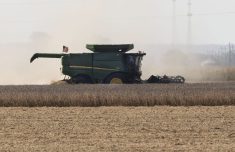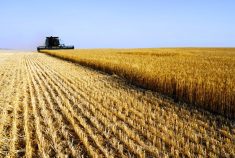The Canadian Food Inspection Agency has added more products to its extensive recall list of beef produced at XL Foods.
The revised list includes soup bones, further processed deli meats, roasts, sausages, beef heart and steaks that might be contaminated with E. coli 0157:H7.
The trace-out from XL to secondary and tertiary distributors, manufacturers and retailers could result in a large number of affected products over a wide range of codes and production dates, said a news release from the agency Oct. 3.
There could be a few more recalls because XL distributes meat across Canada and into the United States, said Richard Arsenault, director of the CFIA’s meat inspection program.
Read Also

Alberta harvest wrapping up: report
Harvest operations advanced to 96 per cent complete in Alberta as of Oct. 7, with only a few late-seeded cereal and canola fields remaining, according to the latest provincial crop report.
“We do know that all the retailers are at the point where all of their recall actions have been done,” he said.
The plant at Brooks, Alta. remains closed as the agency continues to investigate the source of the contamination as well as sanitation measures taken during the time the suspect beef was processed at the end of August.
Arsenault said there was a “high event day” where there was a higher reading of E. coli bacteria than normal. A series of problems seemed to have occurred at once, even though all normal controls were in place. Cattle were clean and there were no problems when the hides were removed. The acid rinses and steam pasteurization were used as normal and cold rooms were working properly.
“There was no evidence of a problem there,” Arsenault said.
“The trick here is that we are all working to find better ways to use this information to avoid this sort of scenario,” he said Oct. 3.
“We are making new science and that is a very difficult area when you don’t have the evidence to know what the right way of doing it actually is,” he said.

















